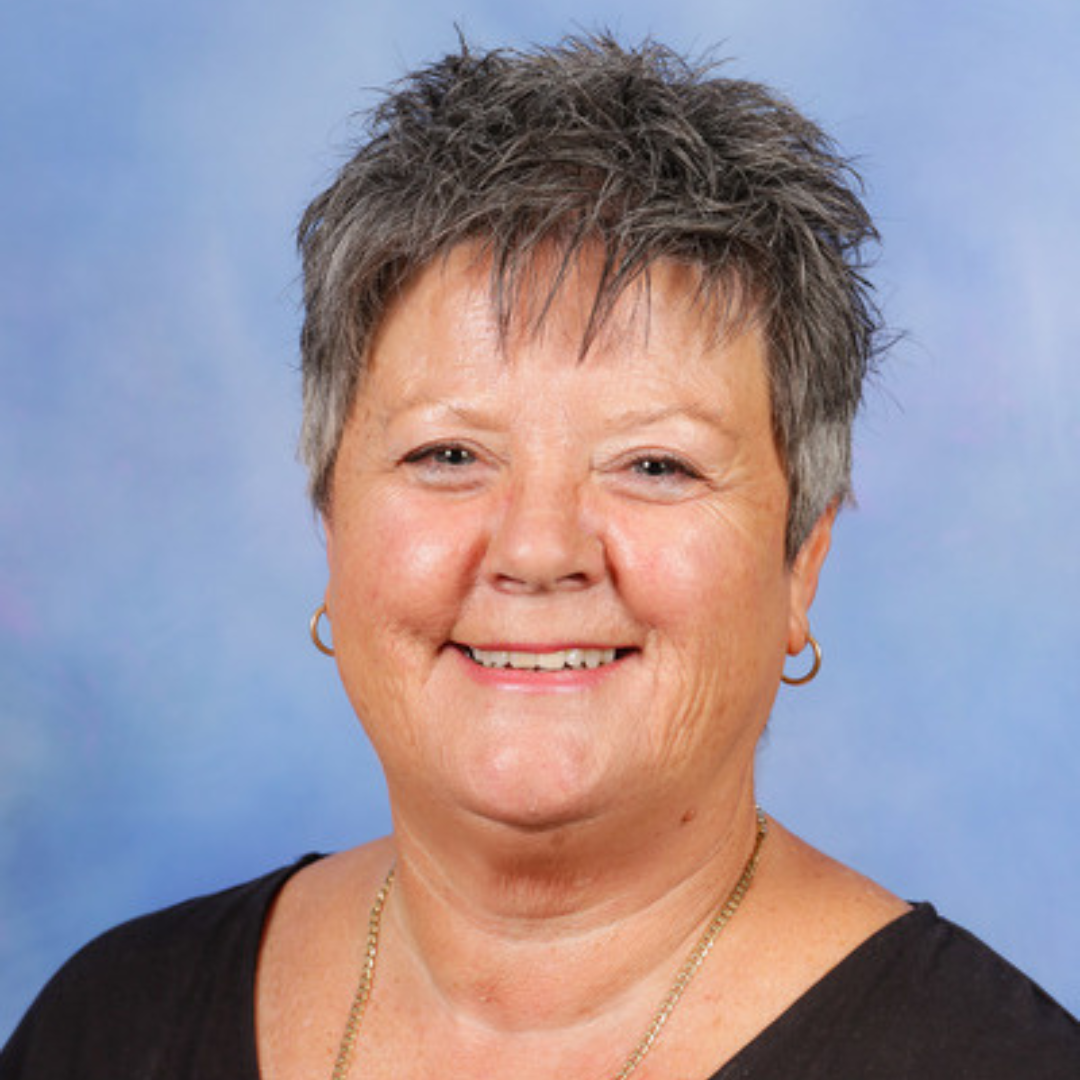
Starting Well
One of the wonderful things about the way our school world is that there are a sequence of endings and beginnings.
We have new months, new weeks, and new days. There are beginnings all over the place.
There are 365 new opportunities in a new year. 2020 is a Year of the Rat and will be a momentous year. The Rat symbolises strong vitality and intelligence. People who are described as ‘like rats’ are very quick–witted and adapt themselves quickly to changing conditions.
Beginnings are the time for hopes, dreams and plans—and a new school year is ideal for thinking about the shape of teaching, how this impacts on the shape of our students’ learning, what sort of people we are becoming and what we would like to see happen this year.
There were two professional learning days for teaching staff before our students returned to school. Our theme for 2020 and 2021 is “Insight to Impact”. Teachers heard from Dr Timothy O’Leary (pictured) on using data, both qualitative and quantitative, to gain insights into our students’ learning and then use these insights to improve our positive impact on learning. We also heard from Chris Varney, CEO of the I CAN network, on how to best engage our students who are on the autism spectrum. Teachers also explored the Framework of Excellence (a document that sets out what we consider to be excellent classroom practice at this school), met in level or discipline teams, attended camps briefings and generally prepared for our students’ arrival.
How can students best prepare themselves for a successful school year? How can parents assist them with this?
The advice given by the Australian parenting website, Raising Children[1], is as follows.
“Being interested, motivated and engaged in learning is important for children once they start school. It can also help if they understand why they’re learning something.
[1] https://raisingchildren.net.au/school-age/school-learning/learning-ideas/learning-school-years
And as your child gets older, they will enjoy taking more responsibility for their learning, and getting more involved in making decisions about learning and organising activities.
Your role in your child’s learning
Even if you think you don’t know much about learning and teaching, your child keeps learning from you over the years. And when your child goes to primary and then secondary school, you can help your child have a positive attitude to learning, just by being positive yourself.
One of the best ways to support your child’s learning and education is by building a good relationship with your child’s school, and communicating with your child’s teachers.
Learning in Early Primary School
Children learn in different ways – some learn by seeing, some by hearing, some by reading, some by doing.
And at this stage, children still learn through play. Plenty of unstructured, free play helps balance formal lessons at school. It also gives children a chance to unwind after the routines and rules of school.
Children also learn by using objects in lots of different ways. When your child is experimenting, exploring and creating with a range of materials, he/she learns about problem-solving in situations where there are no set or ‘right’ answers.
Children aren’t born with social skills – they have to learn them, just like they have to learn to read and write. Giving your child chances to play with other children is a great way for him/her to develop the skills he/she needs to get on with others.
Your child’s community connections can offer valuable learning experiences too. For example, visiting the local shops, parks, playgrounds and libraries or walking around your neighbourhood helps your child understand how communities work. As you and your child explore your community together, you can talk to him/her about interesting things that you see, or share things that you know.
If your family speaks a language other than English at home, this can be a great way for your child to grow up as a bilingual learner. Learning two or more languages doesn’t harm or hold back children’s development. In fact, being a bilingual child can have a lot of advantages – for example, better reading and writing skills.
When you know how your child learns best, you can help him/her with all areas of learning.
Tips for learning at Primary School
Here are some practical tips for helping your primary school-age child learn:
- Show an interest in what your child is doing and learning by talking about school.
- Play rhyming games, letter games, and shape and number games with your child, and practise taking turns in games and activities.
- Use simple language, and play with words and word meanings – for example, you could clap out the syllables of words or play word association games.
- Keep reading to your child even when he/she can read for themselves.
- Let your child hear and see lots of new words in books, on TV or in general conversation, and talk about what the words mean.
- Make sure your child has time for free, unstructured play.
- Help your child discover what they’re good at by encouraging him/her to try lots of different activities.
Learning in Upper Primary and Secondary School
Your child will become more independent as he/she gets older. It might seem that he/she wants you to have less input into his/her learning, but he/she does still need your involvement and encouragement, just in different ways.
Even if your child is sharing less information with you, you can let your child know that you’re interested in what they are learning by actively listening when he/she wants to talk. This sends the message that his/her learning is important to you, and that you’re available to help.
And when you talk with your child about what they’re learning, try to focus on how he/she is learning about the topic, rather than on how much he/she knows. For example, you could say, ‘What was it like to work in a group to make that short film?’, rather than ‘What mark did you get for that film project?’
Most children have one or two areas that they don’t enjoy as much, or aren’t as good at. As your child goes through secondary school, you could talk together about what things could make this better. Your child’s teacher can also help you and your child work this out. [The Senior School’s Learning Behaviours form a good framework for talking to your child about approaches to learning that they might need to improve]
Tips for learning at Upper Primary and Secondary School
Here are some practical tips for helping your older school-age child learn:
- Encourage your child to try new things, to make mistakes and to learn about who he/she is through new experiences. Keep praising him/herfor trying new things.
- Show an interest in your child’s activities. For example, if he/she enjoys playing the drums, ask him/her about the music they’re playing and whether he/she like to play for you.
- Watch the news together and talk about what’s happening in the world.
- If your child has homework, encourage him/her to do it at about the same time each day and in a particular area, away from distractions like the TV or a mobile phone.
- Make sure your child has time to relax and play. For example, your child might like to read, take photos or kick a ball in the backyard.
- Help your child develop or maintain a good sleep pattern.
Sometimes your child will need your emotional support for learning, as much as your practical help. Here are some ideas:
- Try to be sensitive to when your child is struggling with learning tasks, and work out what he/she needs. Sometimes it might be your help, and sometimes it might be a break from the task.
- Accept your child as a whole person. This means appreciating that they are strong in some areas of learning and not so strong in others.
- Respond to your child’s feelings. For example, share her/his excitement when he/she masters something new, and be patient when they are having trouble.
- Try thinking back to your own learning experiences, both the enjoyable ones and the challenging ones. This will help you understand your child’s experience”
Additionally, for our Senior students in Years 10, 11 and 12, this year might bring a set of new challenges as the academic content increases in complexity and more time is required to complete tasks, such as homework. Some students may also have timetables that have a few days’ gap between instructional classes. These aspects may require students to approach their learning in a different way than in the past, perhaps assuming more responsibility for their own learning. In general, it is important that senior students do as much retrieval practice as possible. This is when one tests oneself on previously learned material after a period of time to compel oneself to ‘pull’ it from the brain’s storage. When we think about learning, we typically focus on getting information into students’ heads. Students often study by re-reading their textbooks, highlighting information, and/or reviewing their notes. In both of these situations, the focus is on getting information “in,” with the hope that it sticks.
We’ve all had the experience of feeling like these methods work – if I cram, and re-read, and study my notes, I feel fairly confident that I know the information. And indeed, cramming pays off in some cases but the problem is that these methods only lead to short-term learning. Deliberately recalling information forces us to pull our knowledge “out” and examine what we know. Doing this repeatedly, and on a regular basis, helps the material stay in long term memory. The more difficult the retrieval practice, the better it is for long-term learning. If students do not revisit material learnt until after 24 hours or more, less of the material is retained. This is shown in the ‘forgetting curve’ (below). This has implications for how students do homework. Mrs Atkins and Mrs McDonald (the Academic Directors at each senior campus) and class teachers will have some more advice for students who need it. Please ask.
I wish every student a successful 2020!
Ms Linda Shardlow
Director of Staff Learning and Research







